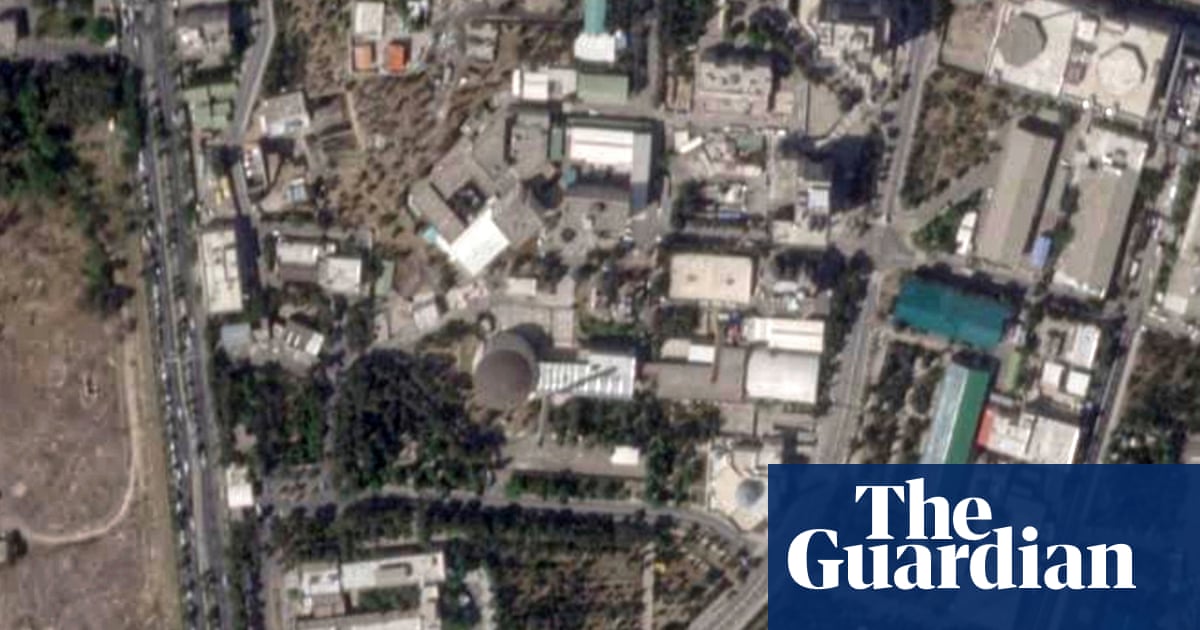Iran’s foreign minister has threatened to end all talks with European officials over its nuclear programme afterPeter Mandelson, the UK ambassador to Washington, appeared to side with US calls to eliminate Iran’s uranium enrichment facilities.
It was not clear if Lord Mandelson’s remarks during a question and answer session at the Atlantic Council in Washington revealed an unannounced change in UK policy or if, in seeking to side with Donald Trump, he had spoken in a way to allow misinterpretation.
Afterfive rounds of talksbetween Iran and the US mediated by Oman, the two sides remain at loggerheads over Iran’s continued ability to enrich uranium, which Tehran regards as a sovereign right and which the US fears leaves open a path to an Iranian nuclear bomb.
After Mandelson’s comments, Iran’s foreign minister, Abbas Araghchi, posted on social media on Wednesday: “If the UK position is ‘zero enrichment’ inIran, there is nothing left for us to discuss on the nuclear issue.”
He said such request was a clear violation of the nuclear non-proliferation treaty and violated Britain’s commitments in the joint comprehensive plan of action (JCPoA), the agreement to contain Iran’s civil nuclear programme that the UK and other world powers signed with Iran in 2015.
Under the JCPoA, Iran is entitled to enrich uranium to up to 3.75% purity subject to an intrusive inspection regime.
Speaking later to reporters on a visit to Oman, Araghchi said: “This tweet was in response to a British official who had talked about zero enrichment. I said there explicitly that we continued our consultations with three European countries during this period, but if their position is zero enrichment, we will no longer have any talks with them about nuclear issues.”
He continued: “They must determine their own position, and we are not joking with anyone on the issue of enrichment.”
On Tuesday, Mandelson had said: “Iran since the theocratic revolution has never been in a weaker state than it is now. Weakened by economic sanctions, weakened by theheavy pounding that its proxies have taken, weaker because of the growth of public opinion, especially amongst young people in Iran, away from the regime. Iran is vulnerable. But it still retains enrichment facilities which can produce … a nuclear bomb. And we can’t accept that.
“So Britain strongly support the [US] president’s initiative in negotiating away these enrichment and related facilities in Iran. We support what Steve Witkoff [the US special envoy to the Middle East] has been doing in his negotiations, which are making some progress.”
The British Foreign Office said when asked for comment: “We remain committed to taking every diplomatic step to prevent Iran from developing nuclear weapons, including through snapback [of sanctions] if necessary. That is the UK’s longstanding position which has not changed.
“We have urged Iran to engage with President Trump’s offer of a negotiated solution and we continue to liaise closely with our allies and partners on this in support of regional stability and to secure peace in the Middle East.”
Trump has spoken of a good announcement within days, but many of his predictions about diplomatic breakthroughs have proved optimistic
No date has been set for a sixth round of talks, but in a potentially important concession Iran has announced it may be willing to have US, and not only UN, inspectors visit and monitor its controversial nuclear programme. Iran has already offered to revert to much lower levels of enrichment, and for its stocks of highly enriched uranium to be put out of use, probably in a third country such as Russia.
After Trump unilaterally left the agreement in 2018, Iran responded by enriching to much higher levels that took its nuclear programme close to the purity levels required to make a nuclear bomb.
The proposal for US inspectors was made in Tehran by Iran’s nuclear chief, Mohammad Eslami on Wednesday and came as Oman hosted the Iranian president, Masoud Pezeshkian, in a further attempt to break the deadlock in the talks.
One idea is for an interim minimal agreement to be reached in which some US economic sanctions are lifted and inspections are fully restored.
The UK, France and Germany have in effect been sidelined in the US-led talks over the nuclear programme, but senior Israeli officials have been holding talks with Witkoff and the CIA.
The Iranian foreign ministry briefed three European officials in Geneva two weeks ago but European officials have remained silent on the US conduct of the talks.
